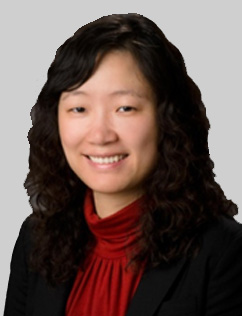Dr. Wang graduated from Fudan University with bachelor’s degree in biology in 2001, from Columbia University with master’s degree in molecular nutrition in 2003, from Johns Hopkins University with PhD in Biostatistics in 2007, and worked as a postdoc at Stanford University and University of California, Berkeley, during 2007-2010 on statistical genomics. During 2010-2015, she was assistant professor at Bioinformatics and Computational Biology, MD Anderson Cancer Center, University of Texas, and became associate professor at MD Anderson Cancer Center in 2015. She is also adjunct lecturer at the Department of Statistics, A&M University, Texas, starting from 2013.
In 2015, she was invited to be member of review committee, Biostatistics and Computational Biology, American Association for Cancer Research, reviewer of journals (more than 20 journals) as well as assessor of project funding for American Association for Cancer Research and cancer research funding agencies in UK and other countries. In 2016, she was invited to be member of review committee, Cancers, American Society of Human Genetics. In 2017, she was elected as project chairwoman of Genetic Genes and Statistics, ASA. She was also invited to be permanent council member of project assessment group, CHSA of NIH.
She is mainly engaged in the development of data analysis methods (especially statistic methods for analyzing complicated big data), challenging the bottle-neck problem in cancer genome data analysis, genetic mutation judgment, target acquisition and analysis of sequencing data, via mutation detection by searching through tumor sequencing data of the largest cancer gene database and international cancer genome allied database and computation and analysis of genome signals from heterogeneous samples of tumors. She studies the proportion of mixed tumor cells, matrix cells and immune cells and individual expression levels and provides risk prediction methods for clinical cancer genetics (Li-Fraumeni Syndrome, p53 genetic mutation) as well as statistic models for post-treatment of cancers. She also provides risk assessment at clinical consultation, with mutation prediction including causes of cancers, genetic factors and DNA mutation (family history) and cancer prediction for cancer diagnosis (family history).

